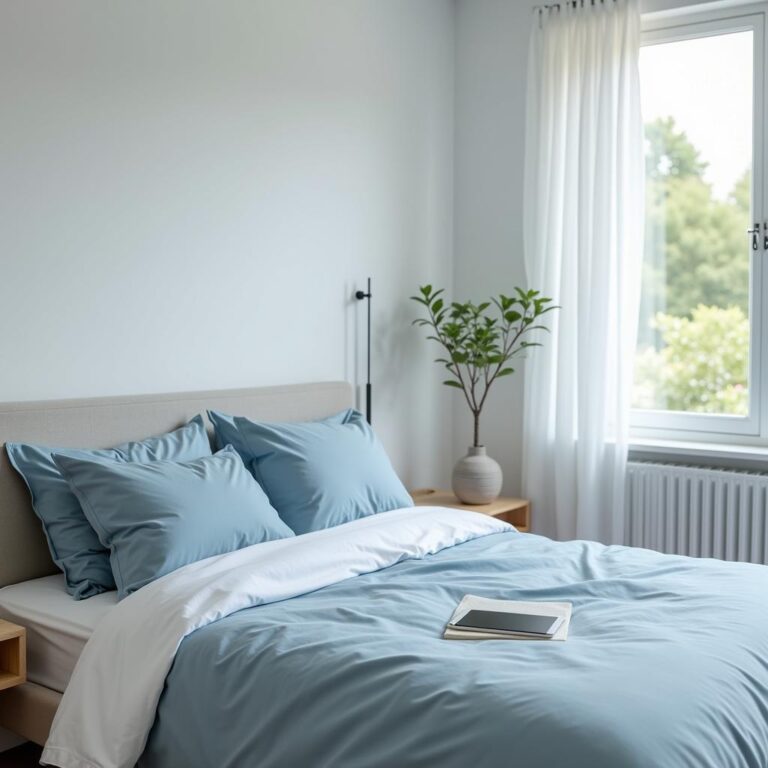In today’s fast-paced world, where productivity is prized, the importance of sleep is often overlooked. However, optimizing sleep habits can significantly enhance your productivity levels. This article dives deep into the various strategies you can implement to improve your sleep patterns and, in turn, your overall efficiency during the day.
Understanding the Importance of Sleep
Sleep is not merely a time for rest; it’s a critical state where your body heals, regenerates, and processes information. Sleep helps in memory consolidation, emotional regulation, and muscle repair, all vital for optimal functioning. Studies show that individuals who prioritize quality sleep experience higher levels of productivity, creativity, and decision-making abilities.
Identifying Your Sleep Needs
Everyone has unique sleep requirements based on age, physical activity, and lifestyle. Although the standard recommendation is 7-9 hours of sleep for adults, it’s essential to recognize your individual needs. Monitor how you feel after varying amounts of sleep; aim to find that sweet spot where you wake up refreshed and energized.
Establishing a Sleep Schedule
Consistency is key when it comes to sleep. Set a regular sleep and wake schedule that you adhere to daily, even on weekends. This routine helps regulate your body’s internal clock, making it easier to fall asleep and wake up naturally. Aim to go to bed and rise at the same time each day, minimizing fluctuations in your body’s circadian rhythm.
Creating a Relaxing Sleep Environment
Your sleep environment significantly affects your quality of rest. Here are some tips to optimize your bedroom for maximum productivity:
- Keep it Dark: Good sleep requires a dark environment. Use blackout curtains or sleep masks to block out light.
- Control the Noise: If you live in a noisy area, consider using earplugs or a white noise machine to drown out distractions.
- Maintain a Comfortable Temperature: Body temperature plays a crucial role in sleep quality. A cool room (around 60-67 degrees Fahrenheit) is considered ideal for sleep.
- Invest in a Quality Mattress and Pillow: A comfortable sleeping surface can dramatically improve your sleep quality. Consider your sleeping position and preferences when choosing these essentials.
Limiting Blue Light Exposure
In our technology-driven world, exposure to blue light from screens can interfere with melatonin production, the hormone responsible for regulating sleep. To optimize your sleep habits, limit screen time at least one hour before bedtime. Consider using blue light filters on devices or wearing blue light blocking glasses in the evening.
Establishing a Pre-Sleep Routine
A calming wind-down routine signals your body that it’s time to sleep. Here are some effective practices to include in your pre-sleep routine:
- Read a Book: Opt for physical books rather than e-readers, as they emit less light.
- Practice Relaxation Techniques: Engage in mindfulness meditation, deep breathing exercises, or gentle stretches to help calm your mind and body.
- Avoid Heavy Meals and Caffeine: Eating heavy or spicy meals too close to bedtime can disrupt sleep. Similarly, consuming caffeine in the afternoon can delay falling asleep.
- Take a Warm Bath or Shower: The drop in body temperature after leaving a warm bath can help you feel sleepy.
Incorporating Physical Activity
Regular physical activity can help you fall asleep faster and enjoy deeper sleep. Aim for at least 30 minutes of moderate exercise most days of the week. However, avoid vigorous workouts close to bedtime, as they may have the opposite effect and make it harder to sleep.
Mind Your Diet
Your nutrition plays a vital role in your sleep quality. Certain foods can promote better sleep, while others may hinder it. Here are some tips for optimizing your diet for better sleep:
- Include Sleep-Promoting Foods: Foods rich in magnesium (such as leafy greens, nuts, and seeds) and tryptophan (found in turkey, dairy products, and bananas) can encourage better sleep.
- Stay Hydrated: While it’s essential to drink adequate water, be cautious about consuming large amounts before bed to avoid nighttime trips to the bathroom.
Dealing with Nighttime Awakenings
If you wake up in the middle of the night, try not to stress. Staying calm can help you fall back asleep. If you find yourself unable to return to slumber after 20 minutes, get out of bed and engage in a relaxing activity until you feel sleepy again.
Utilizing Sleep Aids Wisely
While various sleep aids are available, it’s crucial to use them responsibly. Over-the-counter sleep medications may help in the short term but can lead to dependency if used excessively. Consider natural supplements like melatonin or valerian root, but consult with a healthcare professional before starting any new regimen.
Tracking Your Sleep Patterns
Many individuals find tracking their sleep patterns beneficial in identifying what works best for them. Various apps and wearable devices can help you monitor your sleep duration and identify trends or disruptions. This data can be invaluable in making necessary adjustments to enhance your sleep quality.
Conclusion
Optimizing your sleep habits is a fundamental step toward increasing your productivity and overall well-being. By understanding the importance of sleep, establishing healthy routines, and creating a conducive sleeping environment, you can significantly improve not just your sleep quality but also your daytime performance. Remember, quality sleep is a critical investment in your productivity and health, leading to a more fulfilling life.







